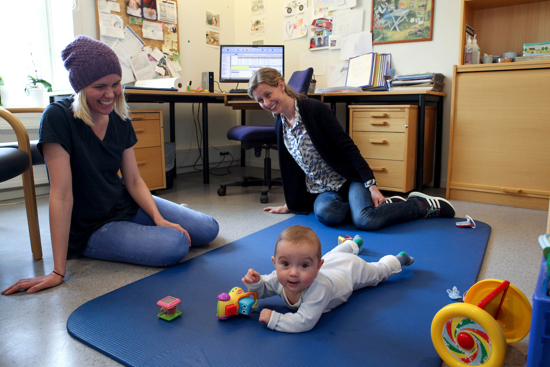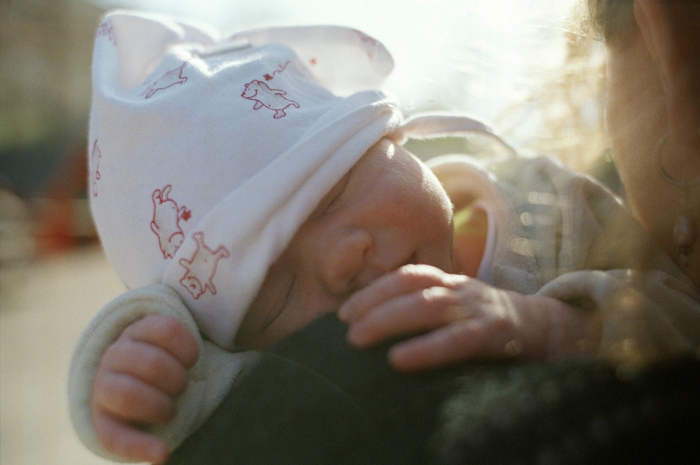Follow-up care in the postnatal period (barseltiden) depends on
- how much help you and the child need to get off to a good start with breastfeeding
- how quickly the baby gains weight
- interventions and complications during the birth, which may mean staying longer at the hospital or centre before going home, and require extra follow-up
In the maternity ward
At the hospital, it is desirable that mother, partner, and child should be together as much as possible. When the child is healthy, it is always with its parents.
In the maternity ward, you have several conversations with health personnel. You will receive information and guidance during the first days after birth.
The follow-up includes the most important topics during this time:
- breastfeeding and infant food
- health of mother and child
- the child's sleeping position
- care of the newborn child
- activity, rest, and hygiene
The duration of the stay will vary according to your needs, but usually the mother and child stay at the maternity ward from 1 to 3 days after the birth.
If everything is normal after the birth, it is possible to go home just hours after the birth if you wish. Several municipalities offer home visits by midwives 1-3 days after returning home.
Before returning home, it is time for a new conversation with the health personnel. In addition to the points above, this conversation will also be about:
- review of the birth
- where to turn if help is needed
- home visit by a midwife or public health nurse
- appointment with a GP or hospital if additional follow-up is required
It is important that you feel safe going home from the hospital. If you are worried, unsure or have questions, either at the maternity ward or when you get home, contact your midwife or GP.
Follow-up after returning home
When you leave hospital, you will need an arrangement for postnatal follow-up. The hospital is responsible for notifying the Child and Maternal Health Centre (helsestasjon), your GP and the midwifery service that you and your baby have been discharged and gone home. As this may take a few days, it is a good idea to contact your Child and Maternal Health Centre to let them know that you are out of hospital. At weekends or public holidays, the health centre is closed. You should either call the health centre from the maternity ward before the weekend or public holiday, or the first working day after returning home.
You should be offered a home visit by a midwife during the first three days after returning home. You will be visited by a health nurse on day 7–10 after the birth.
If you need follow-up before the scheduled first home visit, contact the Child and Maternal Health Centre in your municipality or the hospital where you gave birth.
When you have given birth, you are entitled to one free check-up 4–6 weeks after birth, either with a midwife at the health centre or with your GP. This check-up focuses on your health and should also include information and offer of contraception. You must schedule this check-up yourself.
Sometimes you would need an appointment with the GP earlier, either because the hospital recommended it, or because you see the need yourself.
The Child and Maternal Health Centre offers further follow-up of the child until the start of school. This healthcare is provided under a standard programme.

Infant healthcare programme, age 0-5 years
“Helsestasjon 0-5 år” is a free healthcare programme for all children until they start school. During this time, they are offered 14 check-ups. Information in Norwegian.
Illustration: Rebecca Ravneberg / Helsedirektoratet
Ask for help and ask questions
The most important information that healthcare personnel receive about the mother, child and family is the information you provide yourself. For them to provide the right help and treatment, it is important that you ask the healthcare professionals about anything you are unsure of. Before an appointment, you can make a note of questions to ask.
Information can be provided in several ways, such as in writing, one to one or in group-based instruction. You can find out what is offered where you live by contacting the health centre.
Specific information must be adapted to their needs and knowledge. In the event of any language problems, the health service is required to use trained interpreters. Both the interpreters and the healthcare professionals have a duty of confidentiality.
